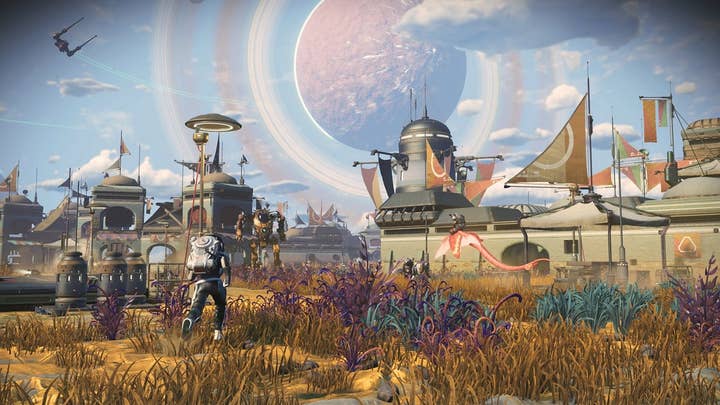The costs of buggy game launches are mounting | Opinion
Consumers always hated the "launch now, fix later" approach, but the public is increasingly intolerant of low-quality launches
Fans of dystopian futures, rejoice; a mere 15 months after Cyberpunk 2077 launched to the clamorous noise of an orchestra playing a fanfare suddenly falling down a well, the formerly much anticipated game is now, supposedly, actually playable.
An enormous patch released this week fixed countless bugs and brought with it the oft-delayed versions of the game for what are now the thoroughly current-generation consoles; watching the lengthy stream in which developers CD Projekt Red introduced the new patch, there was some palpable tension between wanting to be celebratory over what has undoubtedly been a pretty intense year of development work, and trying to strike an apologetic tone over a patch that really only brings the game up to the basic level of functioning consumers are entitled to expect from a full-price AAA game.
Meanwhile, Electronic Arts is having a problem with its own dystopian future. The company is in full damage control mode over Battlefield 2042, whose buggy and incomplete state at launch has earned players' ire to such an extent that there must be serious internal conversations going on about whether there's any possibility of return from this brink. Ordinarily, an online petition demanding players' money back wouldn't be worth the paper it isn't printed on, but the sheer numbers putting their names to protests over the state of Battlefield 2042 are somewhat eyebrow-raising - matched only by the absolute lack of numbers the game is posting in statistics on services like Steam, suggesting a total collapse in the player base of a game that was meant to be a relatively long-term service offering.
Launching games in a somewhat unfinished state has essentially become standard industry practice in the years since consoles became capable of downloading day-one patches
Yes, the joke here is that the real dystopian future is a world in which this industry has collectively decided that it's fine to sell consumers products that are thoroughly and utterly broken as long as you cross your heart and promise to fix some of it later. Nobody promised you subtlety.
Launching games in a somewhat unfinished state has essentially become standard industry practice in the years since consoles became capable of downloading day-one patches. Publishers have shaved days and weeks off already tight development timescales by making the lead time between "gone gold" and a game appearing on store shelves into a desperate, crunch-filled rush to fix outstanding issues - and platform holders have tacitly permitted and even encouraged this behavior by relaxing strict technical quality checks that would, in the era before patches, have seen the "gold" code for many modern games being rejected and sent back to be fixed.
This isn't, of course, to imply that the era before patches was a promised land of perfectly functioning games; total trash still made it out the door, but by and large software that ended up on store shelves with a platform holder's logo on the box was up to at least a basic standard of technical functionality. The rise to dominance of service-based games in the past five to ten years has only worsened things; it has become standard practice for entire major features of a game, whole bullet points are on the back of the box, to be left out of an initial launch with a vague intention of adding it into the game some time down the line.
Which direction a game goes after a rough start can vary wildly. There are some absolute disasters out there -- EA's own Anthem arguably remains the most rapid and dramatic total failure of a service-based game, going from being a huge, expensively promoted AAA title from a famous studio and publisher to being essentially shut down in the space of a few months, but there are countless other less high profile games which have more or less collapsed after a rough launch that didn't live up to expectations.

Equally, though, there are the redemption stories; No Man's Sky and Final Fantasy XIV are perhaps the most dramatic turnarounds, going from being in brutally bad and unfinished states at launch to being hugely beloved, albeit with years of very, very hard work going into that metamorphosis. CD Projekt Red no doubt hopes to see Cyberpunk 2077 follow the same redemption arc (the company does have form, with The Witcher games all being pretty rough and ready when they launched as well), though this week's patch is merely the start of that process, not the end.
In between those extremes, of course, lie many other projects whose rough launches have condemned them to a kind of twilight existence -- never fully living up to their initial promise, but never quite performing badly enough to drive their publishers to stop throwing good money after bad and put them out of their misery.
Here we find games like Marvel's Avengers, which has seen several efforts at resuscitation since its poorly-received launch - but even adding beloved Marvel characters and its most recent efforts to attract new players on Game Pass don't seem to have done much to juice the numbers for the game, whose continued operation likely owes as much to the nature of Square Enix' contract with Disney as it does to any real faith in its future prospects.
While launching unfinished games and fixing them later has become standard practice, there's mounting evidence that doing so undertakes costs and risks that far outweigh the benefit
Here too we find Fallout 76, as unedifying an example as one might imagine of a game launching incomplete, buggy and in no fit state for the prime time; sterling effort by the developers has seen it claw its way back to playability and it's built a decent core base of players, but it has never and likely will never live up to the huge potential it held prior to launch.
The point here isn't just to wag fingers at games that launched in a poor state and cluck at their subsequent failures; it's to point out that while the ability to launch unfinished games and fix them later has made this into standard practice for much of the games industry, there's mounting evidence that doing so undertakes costs and risks that far outweigh the benefit of getting a game to market earlier.
Of course, it's rarely that simple; moving a game's launch too late in the process can end up triggering compensation clauses in contracts for everything from marketing to merchandising, creating a cascade of additional costs. But that doesn't change the fact that launching an unfinished game is essentially a death knell for many service-based offerings, and extremely tough and expensive to recover from even for single-player focused titles. Rather, the network of contracts which surround a game's launch should incentivize publishers and developers alike to be more realistic and clear well in advance of the launch about how development is progressing and whether the existing timescales are going to work out.
Consumers have never liked buying games that turned out to be buggy and unfinished -- of course they don't, who would? -- but that dislike seems increasingly to have turned into an outright intolerance of that practice, meaning that the risks and consequences of launching in a bad state are becoming increasingly tough to handle. Not even being based on a huge IP or throwing enormous amounts of money and development effort at it post-launch will necessarily rescue a game that's turned the public mood against itself from the outset. Even among the minority of games which do manage to turn things around, only a very tiny few ever really manage to live up to their initial prospects (and even then, only after massive expenditure on additional development).
The "we'll fix it post-launch" approach has started to have costs and risks that in many cases outweigh even the worst-case scenario costs of a delayed launch; in the wake of such high-profile failures it's time for publishers to reconsider how they assess those costs and consequently, how much priority they place on a smooth, high-quality launch product.

